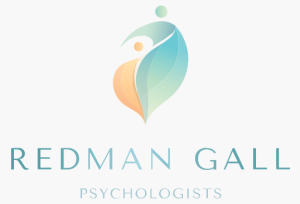The answer could be yes..
Whatever the reason, poor or insufficient sleep can wreak havoc on your sex-life.
How?
Well there are a number of ways. Below, I’ll talk about two of the biggies.
Fatigue – Most people who are in ongoing sexual relationships will recognise that they are less likely to feel up to having sex, particularly lengthy sex, when they are tired. So, it will hardly be surprising that the subjective feeling of fatigue is linked to a reduced interest in sex.
Fatigue will also often reduce the amount of energy we have to give to the needs of others and can reduce feelings of ‘connectedness’ and emotional intimacy.
However, did you know that one of the things that is impaired by getting insufficient sleep is our ability to assess how much we are affected by it? We know that one of the first things to deteriorate when we don’t get enough sleep is our ability to assess just how much we are impacted. That is, people tend to think that they are coping ‘just fine’ with reduced sleep, when in fact they are impaired. There is masses of research demonstrating how fatigue and ‘staying awake’ for extended periods (e.g. 17 + hours for an adult) impairs our performance in ways similar to having drunk alcohol and being over the limit.
Poor or insufficient sleep is linked to reduced testosterone – and reduced testosterone is linked to reduced sex-drive. Research suggested that this effect occurs in both men and women. Surely it is not that significant I hear some people ask – well one study of men who were sleep restricted for just a week demonstrated drops in testosterone equivalent to them aging by between 10 and 15 years. Yikes!
Some conditions such as sleep apnoea reduce sexual interest and performance by creating significant fatigue and through lowering testosterone.
Other reasons
Poor sleep increases your risk of other conditions such as obesity and depression which are also associated with lowered libido. It can also impair the functioning of your immune system, leaving you prone to bugs. Who feels horny when they have a cold?
Let’s not forget that when we are tired we are often irritable, moody, have difficulty concentrating… the list goes on. This hardly makes us attractive to others.
So for whatever the cause, poor or insufficient sleep can mess with your, and thus your mojo.
Why do people struggle to sleep?
Poor sleep occurs for a range of reasons: stress, illnesses, injury, mental health disorders – such as depression, caffeine, alcohol, poor sleep ‘hygiene’, snoring (your own or other’s), hormonal fluctuations (e.g. menopause), environmental factors such as being too hot or cold.
Many adults in modern urban society are chronically sleep deprived and are getting less sleep than they really need in order to fit in other things.
How do you know if you are getting enough? (Sleep that is)
If you fall asleep very quickly upon going to bed – this is often a sign that you are fatigued and require more sleep.
If you sleep in on days where you don’t have to get up, when we are getting enough sleep, and in the absence of other conditions such as depression, the body is not particularly good at oversleeping without feeling awful.
If you sleep through your alarm.
If you are an adult and you are getting less than 8-9 hours a night. Kids need more, with the amount decreasing as they age. Some people can squeeze by on about seven and a half hours per night. Generally, people sleep less as they age, though this does not necessarily mean that they need less sleep.
So is getting more sleep the answer?
In rare study on the impacts of sleep on sexual desire in women found that a one hour increase in sleep was associated with a 14% increase in the likelihood of engaging in sexual activity the next day. Similarly, treatment studies of sleep apnoea find that sexual activity and interest increases with improvements in sleep. So, the answer is – it’s a good place to start.
How Psychologists can Help with Sleep Problems
People often don’t think of seeing a psychologist for problems sleeping, but a psychologist can help in several ways:
- By providing treatments such as CBT
- Incorporating elements such as stimulus control (avoiding things that keep you awake, and helping you to be physically
- ready for sleep)
- Cognitive therapy
- Sleep restriction
- Relaxation training
- Improving your sleep hygiene
- By treating underlying conditions that are causing the sleep problems (e.g. depression).
References:
Andersen, M. L., & Tufik, S. (2008). The effects of testosterone on sleep and sleep-disordered breathing in men: its bidirectional interaction with erectile function. Sleep Medicine Reviews, 12(5), 365-379.
Andersen, M. L., Alvarenga, T. F., Mazaro-Costa, R., Hachul, H. C., & Tufik, S. (2011). The association of testosterone, sleep, and sexual function in men and women. Brain research, 1416, 80-104.
Kalmbach, D.A. Arnedt, T., Pillai, V., & Ciesla, J.A. (2015). The impact of sleep on female sexual response and behaviour. Journal of Sexual Medicine, 12, pp1221-1232.
Leproult, R., & Van Cauter, E. (2011). Effect of 1 week of sleep restriction on testosterone levels in young healthy men. JAMA, 305(21), 2173-2174.
Petersen, M., Kristensen, E., Berg,S., Giraldi, A., Midgren, B. (2011) Sexual function in female patients with obstructive sleep apnea. Journal or Sexual Medicine, 8(9), pp2560-2568.
Petersen, M., Kristensen, E., Berg,S., Midgren, B. (2010). Sexual function in male patient with obstructive sleep apnoea. Clinical Respiratory Journal. 4(3), 186-191.
Reishtein, J.L. Maislin, G., & Weaver, T.E. (2010). Outcome of CPAP treatment of intimate and sexual relationships in men with obstructive sleep apnea. Journal of Clinical Sleep Medicine, 6(3), pp221-226.



